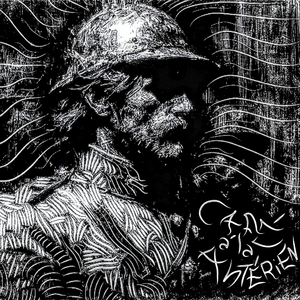Ast'erianos Q'ava: Difference between revisions
Lannistter (talk | contribs) mNo edit summary |
Lannistter (talk | contribs) mNo edit summary |
||
| Line 32: | Line 32: | ||
This story explores the limits of both human morality and ethics, while enjoying the warm feeling of familiarity conveyed by a simple cup of hot coffee. ''Café à la Astérien'' is nuanced, from Misho's introspective and passion for his work, the forces of the super-personal knocking on the door of his life, the stories and narratives of the people around him, a peculiar forbidden love, to the brutality of war from the perspective of an old tale — one that, while forgotten and somewhat controversial, still deserves to be told; preferably, with a cup of asterian coffee within reach. In seeking to recreate even the smallest detail of the scenic setting that is narrated in the story, director Mishkhelia did his best to ensure that much of the film could have been shot in [[Vinalia]]. | This story explores the limits of both human morality and ethics, while enjoying the warm feeling of familiarity conveyed by a simple cup of hot coffee. ''Café à la Astérien'' is nuanced, from Misho's introspective and passion for his work, the forces of the super-personal knocking on the door of his life, the stories and narratives of the people around him, a peculiar forbidden love, to the brutality of war from the perspective of an old tale — one that, while forgotten and somewhat controversial, still deserves to be told; preferably, with a cup of asterian coffee within reach. In seeking to recreate even the smallest detail of the scenic setting that is narrated in the story, director Mishkhelia did his best to ensure that much of the film could have been shot in [[Vinalia]]. | ||
==Plot== | |||
==Cast== | |||
==Conception & Writing== | |||
==Filming & Production== | |||
==Release and Reception== | |||
==See also== | |||
Revision as of 21:10, 15 January 2024
This article is incomplete because it is pending further input from participants, or it is a work-in-progress by one author. Please comment on this article's talk page to share your input, comments and questions. Note: To contribute to this article, you may need to seek help from the author(s) of this page. |
| Café à la Astérien | |
|---|---|
 Theatrical release poster | |
| Directed by | Angeloz Mishkhelia |
| Screenplay by | Angeloz Mishkhelia |
| Story by | Angeloz Mishkhelia Kuzh Zalavikhi |
| Based on | Ast'erianos Q'ava, by Mikheil Kizhak |
| Produced by | Nikita Biryukov Avi Yachvili |
| Starring | Nodar Feynmann-Asatiani Sezja Zaytzeva |
| Cinematography | Ilia Gotdiridze |
| Edited by | Bagrat Botkoveli |
| Music by | Alexei Meshki |
Production companies | Stella Pictures Erovnuli T'elevizia |
Release dates |
|
Running time | 181 minutes |
| Countries | Salikhia Vinalia |
| Languages | Salikh Soravian |
| Budget | $13 Million |
Café à la Astérien (Salikh: ასტერიანოს ყაავა, tr: Ast'erianos Q'ava, lit. Asterian Coffee) is a 2024 Salikh epic anti-war film directed and written by Angeloz Mishkhelia, starring Nodar Feynmann-Asatiani & Szesja Zaytzeva.
The film is an adaptation of the novel of the same name inspired by the Legend of Misho Kolobanov, a Folk tale that narrates the story of a taxi driver from Mtavarangelozi who is tempted to join the Legioni as a mercenary. His story, of unknown origin, and which may undergo various changes depending on who the narrator is, was commonly told at nightly campfires among legionaries during the Chyhyryn War. As a ritual, after telling the story, the narrator would shout loudly into the air "Misho, take us in your chariot", to express the wish that the war would soon come to an end, and that all listeners would be able to return to their distant homes.
This story explores the limits of both human morality and ethics, while enjoying the warm feeling of familiarity conveyed by a simple cup of hot coffee. Café à la Astérien is nuanced, from Misho's introspective and passion for his work, the forces of the super-personal knocking on the door of his life, the stories and narratives of the people around him, a peculiar forbidden love, to the brutality of war from the perspective of an old tale — one that, while forgotten and somewhat controversial, still deserves to be told; preferably, with a cup of asterian coffee within reach. In seeking to recreate even the smallest detail of the scenic setting that is narrated in the story, director Mishkhelia did his best to ensure that much of the film could have been shot in Vinalia.